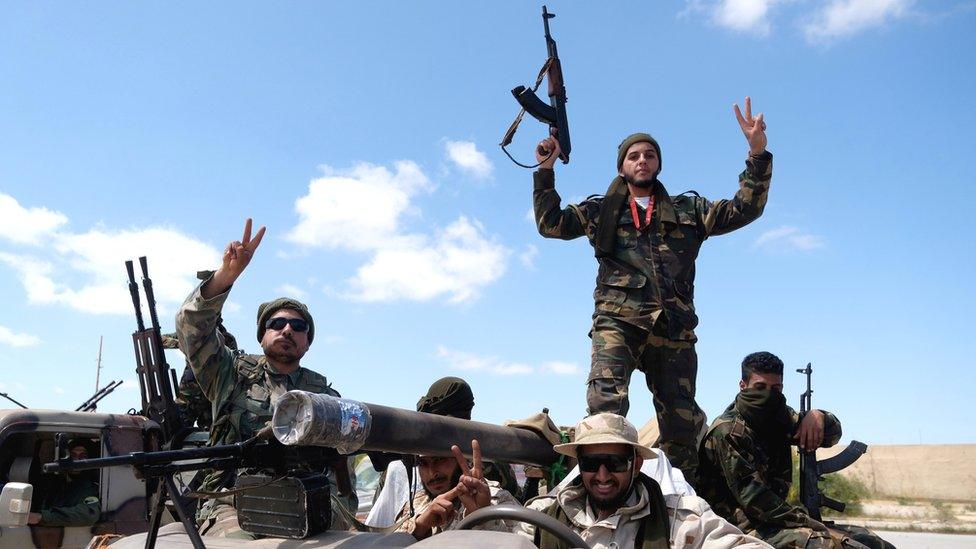Back to school in the Middle East: A glimmer of normal life
- Published
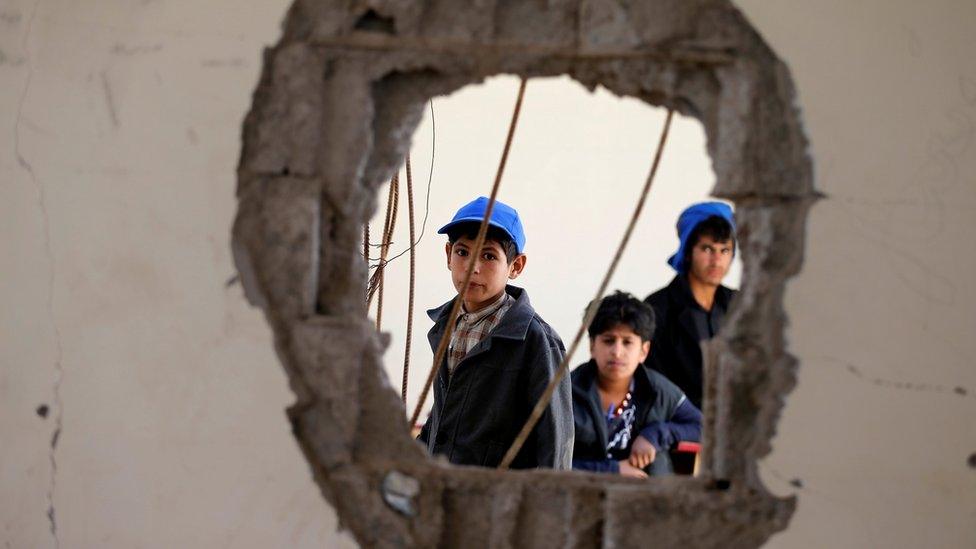
Millions of children across the Middle East have been unable to begin the new school year, with those in countries plagued by armed conflict finding themselves, their teachers and their schools in the line of fire.
Some living in Syria, Yemen and Libya are nevertheless braving the journey to school, hoping to lead as normal a life as possible.

Syria
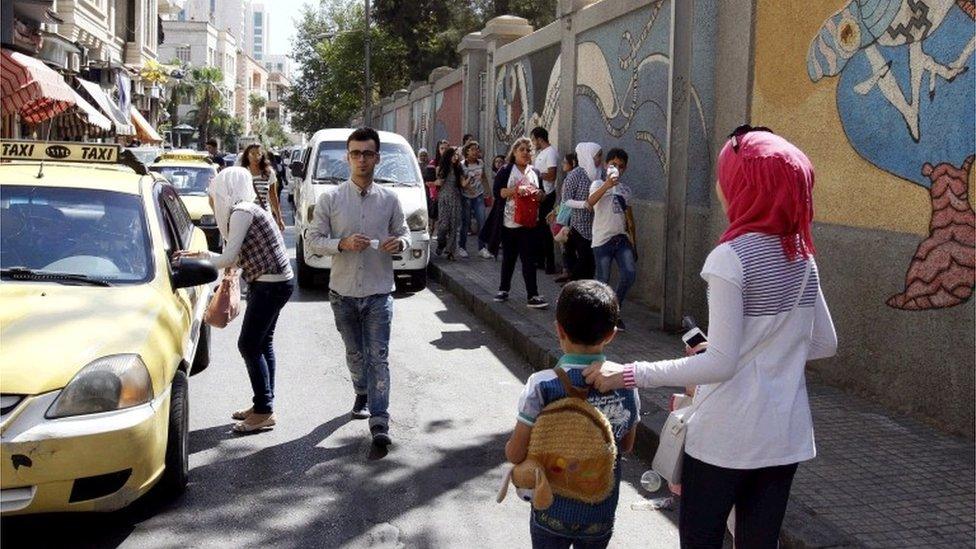
Many parents accompanied their children to school in the capital, Damascus
Maarouf, a nine-year-old boy from Damascus, welcomed the start of the academic year with "fear and apprehension".
But his fear is not of the five-year war that has seen forces loyal to President Bashar al-Assad and those opposed to his rule battle each other - as well as jihadist militants from so-called Islamic State.
"I am afraid I will not get good grades. I do not want my teachers to punish me. Last year, the subjects were easier," Maarouf told the BBC.
All that Maarouf wants is to perform well at school and receive his teachers' praise.
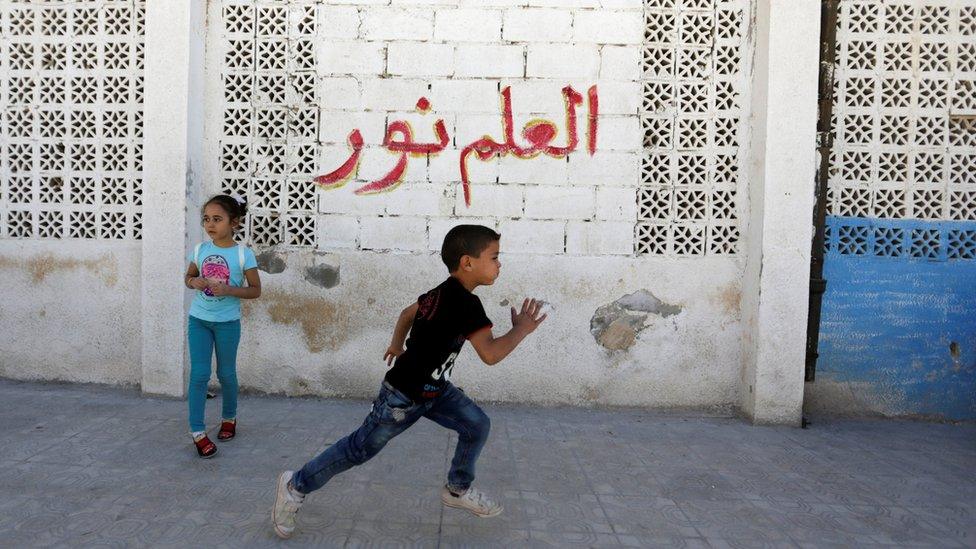
Written on a wall on a playground in Maarat al-Numan is the phrase: "Education is light"
Unlike some other parents in the capital, who have opted for home-schooling or taken their children out of school altogether, Maarouf's mother is keen for him to continue going despite the security concerns.
"Although I live in a secure place in Damascus and the school is just three minutes away from our place, I have to accompany him on his way to and from school every day," she told the BBC.
"In the past, I had serenity. I would send my son to school with enthusiasm, but now there is discomfort," she added.
But she stressed: "I want my son to go to school because I want him to have a normal life."
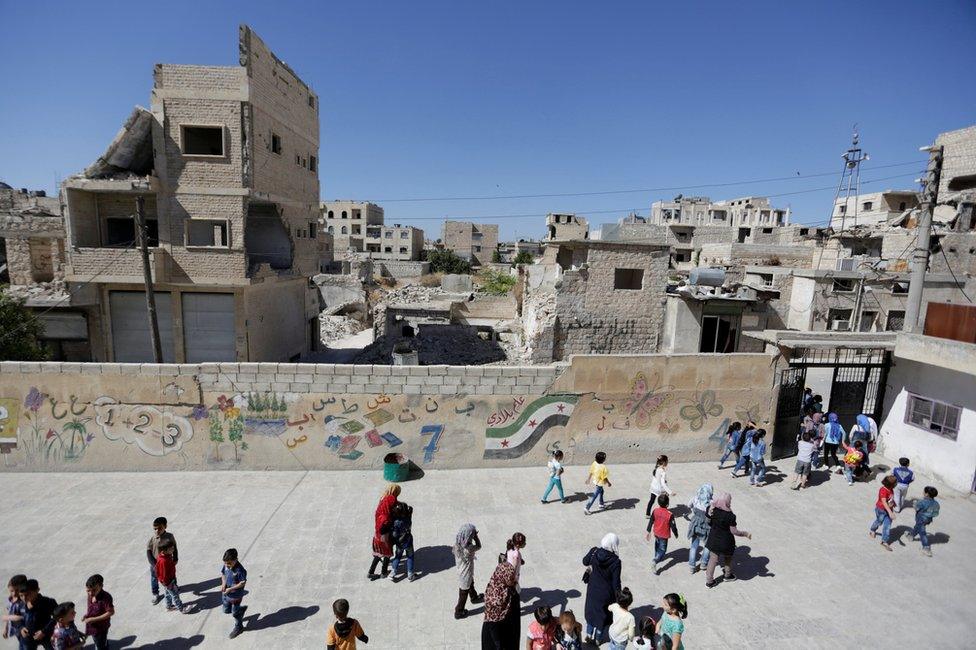
One-in-four of the schools in Syria are damaged, destroyed or occupied
Meanwhile, the aerial bombardment of besieged rebel-districts of Syria's second city of Aleppo by the government and its ally Russia continued unabated as children went back to school there.
Attendance was reportedly poor on the first day and many school buildings remained closed, but those children who did turn up for classes gave their teachers a glimmer of hope.
"For Aleppo, back to school means back to life. A revolution without education is just a war... Children like going to school. We insist on keeping schools open because without education, [life] would be pointless," Wissam al-Zaraq, a teacher at a school in rebel-held Aleppo, told the BBC.
More than 2 million Syrian children and adolescents are out of school and those who are still receiving education are increasingly being withdrawn to act as breadwinners, placing a growing number of girls at risk of forced marriage, and leaving boys vulnerable to child labour and exploitation.
Some 700,000 refugee children in neighbouring states are also not in school.

Yemen
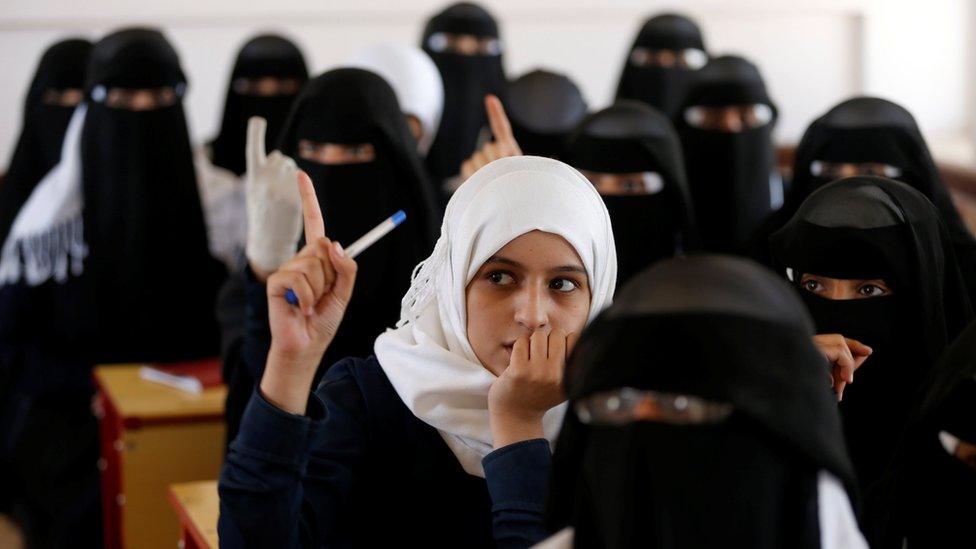
More than 2 million children have been out of school in Yemen since March 2015
The new school year in Yemen was overshadowed by the continuing war between the Houthi rebel movement and forces allied to the government, which is backed by a Saudi-led multinational coalition.
Due to violence and the closure of schools, more than 350,000 children were unable to resume their education in the last school year, bringing the total of out-of-school children in Yemen to 2 million.
"Children were killed on their way to school or while at school," said Julien Harneis, representative of the UN Children's Fund (Unicef) in Yemen. "Parties to the conflict should keep children and schools out of harm to give education a chance."
Despite the dire security situation, Yemenis still want the best for their children.
"People still send their children to school because they want to resume their normal life, and going to school is part of it," Moustafa al-Rifai, a grandfather of a 10-year-old boy who lives in the Houthi-controlled capital Sanaa, told the BBC.

Libya
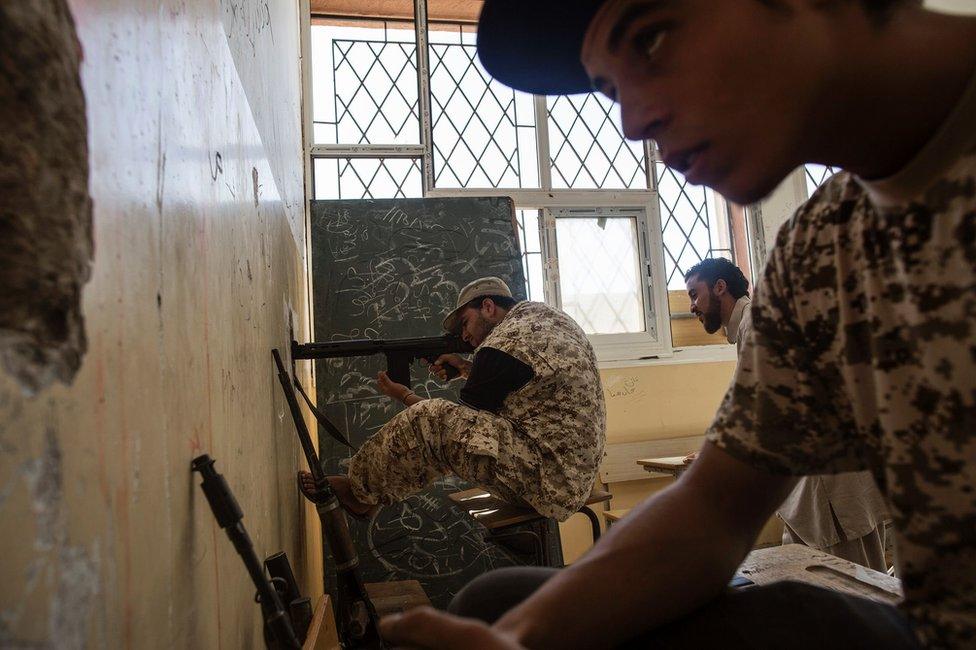
Many schools in Libya are no longer functioning or inaccessible due to the conflict
Since the overthrow of Muammar Gaddafi in 2011, Libya has been plunged into chaos and left deeply divided, with dozens of armed groups holding sway on the ground.
School enrolment rates across the country have dropped by an average of 20% over the past 12 months, a trend that has seen 150,000 children deprived of education.
The unrest has turned many schools into shelters for displaced people.
Yet parents are still keen to provide their children with education, even in the eastern city of Benghazi, which has been decimated by conflict and where 73% of schools are no longer functioning or are inaccessible.
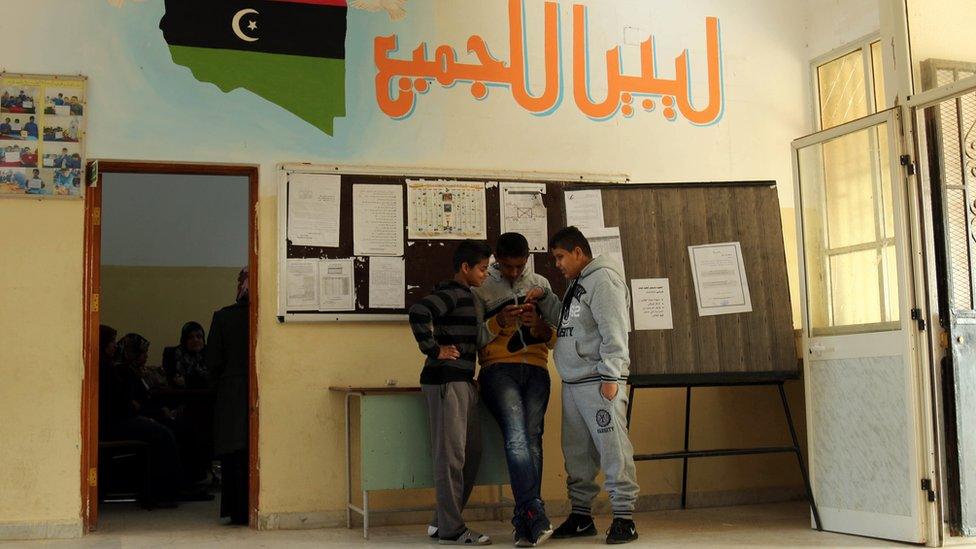
Amid the instability in Benghazi, schools are one of the only places for children to meet and play
For seven-year-old Malaak, who lives in Benghazi, going back to school means "meeting her friends".
Malaak was sad when her school was forced to close over security concerns.
The situation is "slowly improving but not yet stable", says her aunt, Hoda Abdallah, an English teacher at a private school in the city.
"Many parents are resorting to private schools, although these schools are exploiting the situation in the country and raising their fees," Ms Abdallah added.
BBC Monitoring reports and analyses news from TV, radio, web and print media around the world. You can follow BBC Monitoring on Twitter, external and Facebook, external.
- Published26 September 2016
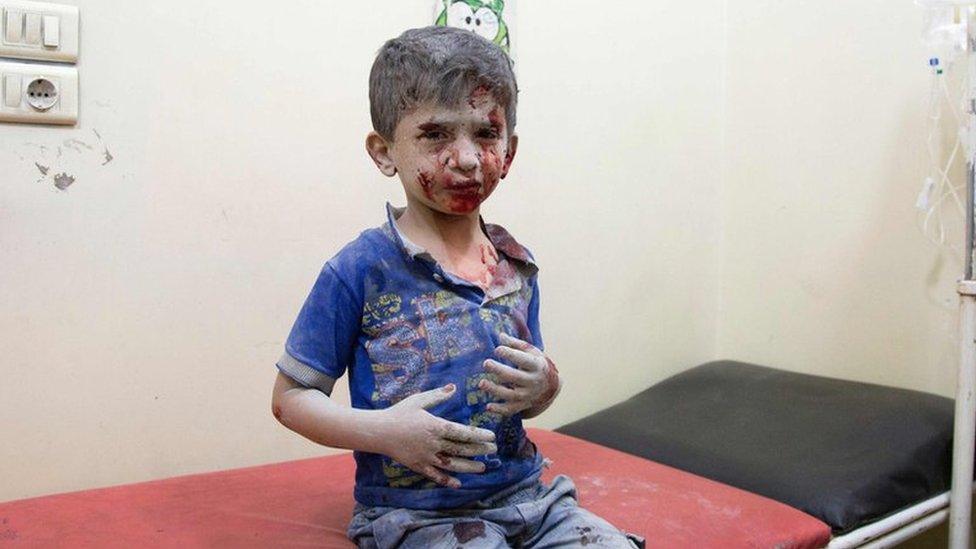
- Published26 March 2016
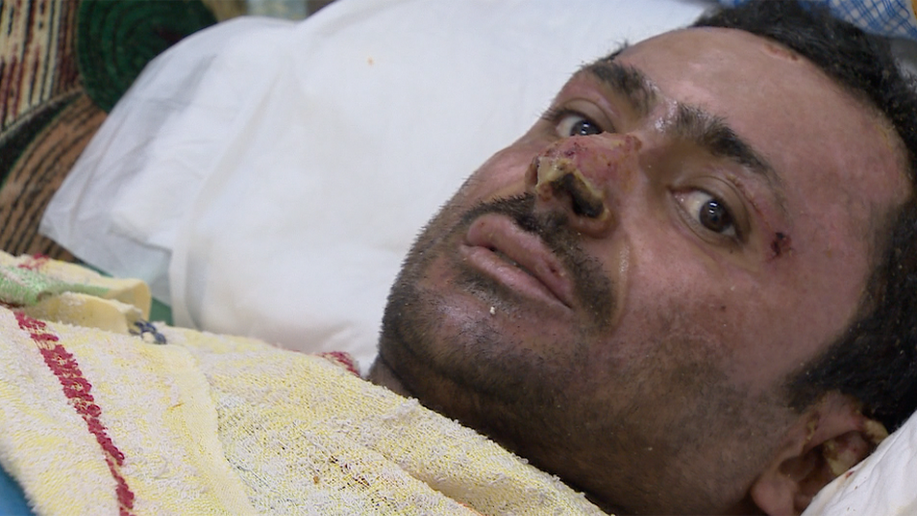
- Published23 January 2020
